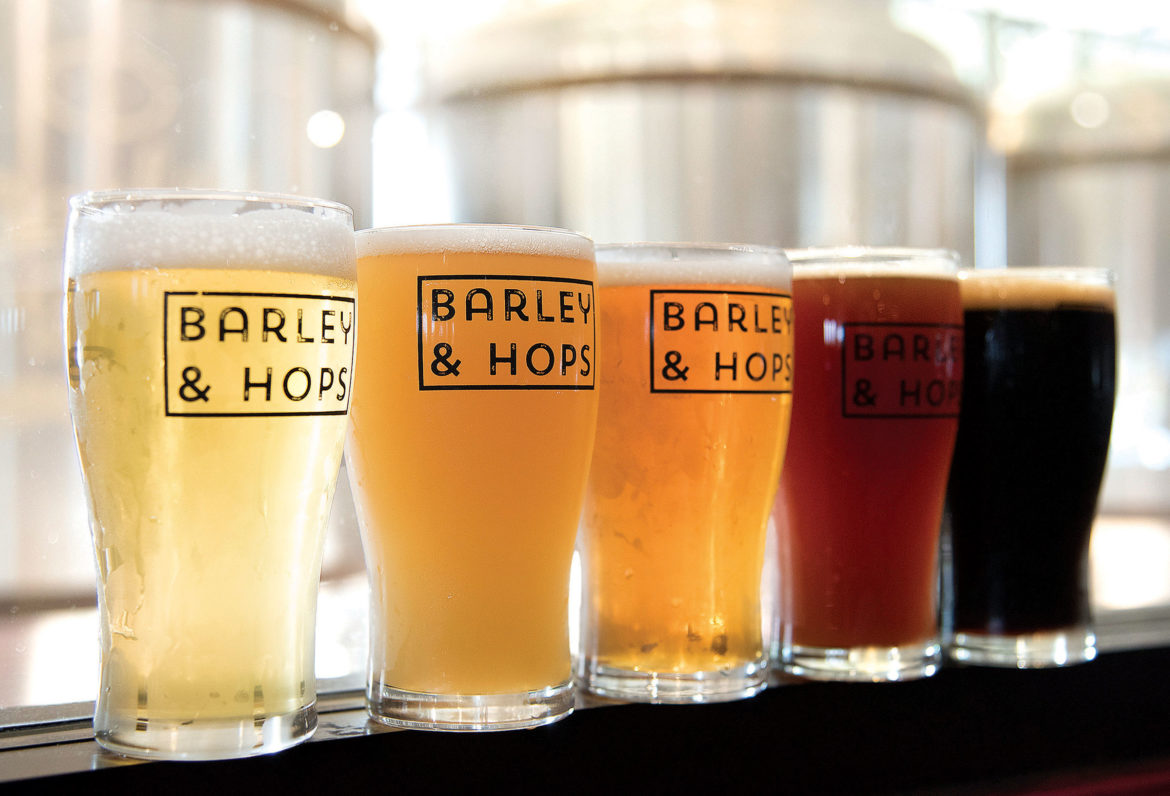In some ways, that seems like a silly question. Just a few years ago, it was pretty easy to define what craft beer was — any beer not made by a macro brewery. However, as large breweries like AB InBev are buying small craft breweries as a way to compete in that market segment, the definition has grown murkier.
Some fans of craft beer argue that any brewery owned by a macro brewery can no longer be considered craft. Some fans care only if the brewery is producing a quality product.
One place to look for a definition is the Brewers Association. It defines a craft brewer as small, producing 6 million barrels or fewer annually; independent, meaning less than 25 percent is owned or controlled by an entity that is not a craft brewer; and traditional, in that a majority of its total beverage alcohol volume in beers has a flavor derived from traditional or innovative brewing ingredients and their fermentation.
I asked those with a stake in Frederick’s craft brewing industry to expound on the definition. Here’s what they had to say.
“Men and women who are experts in a craft are generally referred to as ‘artisans’ these days. …A bit of the personality, nature, and culture of artisans—a bit of their heart and soul—is in what artisans create. You can feel it. You can sense it. Artisans don’t create products, they create something to believe in. A craft beer cannot be created by a marketing company or by some arbitrary industry classification. A craft beer can only be created by men and women who we honor as ‘artisans’ in the most noble sense of that term.”
–Jim Caruso, CEO, Flying Dog Brewery
“Craft beer to me is a product of small brewers. At least that is how we start out, trying to create new and interesting flavors. This can mean brewing something totally new or trying to improve on classic styles with modern brewing techniques and ingredients.
As for the current trend of big beer buying up smaller breweries, I think the difference is those breweries have already found their niche and have a large following of core customers, which is what put them on the radar of big beer in the first place. That is not to say that they are necessarily resting on their laurels and not producing new beers. I feel that breweries that have been acquired by big beer lose control of what brought them into this industry in the first place. It’s obviously a business decision, but there is a price to pay.
As a consumer of craft beer, I do not support sell-out breweries. I harbor no ill will toward them, but prefer to spend my money on the myriad of excellent craft beer that is available just about everywhere from small independent brewers.”
–Scott McKernon, brewmaster, Rockwell Brewery
“Brewing craft beer represents independent expression which, by definition, cannot be simply acquired from someone else and remain true or real.”
–Eric Gleason, head brewer, Barley & Hops
“Craft beer is about small, locally owned and operated breweries. Craft beer is about keeping your dollar local. When you buy a craft beer, your money stays in town. When you buy a Bud Light, most of that dollar leaves your community.”
–Brian Ogden, owner/brewmaster, Attaboy Beer
“A former craft brewer purchased by a mega-brewer no longer has claim to the identity of a craft brewer. We should applaud their success but by no means grant them a free pass to continue identifying with their former nature.”
–Tom Flores, brewmaster, Brewer’s Alley and Monocacy Brewing Company
“Craft beer to us is friends, community and collaboration. It’s an opportunity to express our passion for the craft, and be a part of such a supportive beer culture in Frederick. It’s a great time for our city and craft beer!”
–Keith Marcoux co-owner/brewer, Olde Mother Brewing

